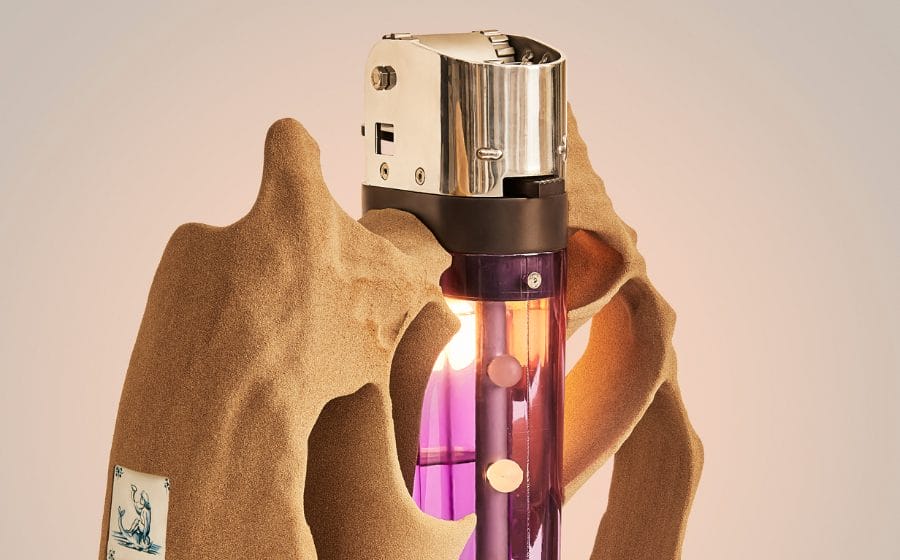Cryptocurrencies – everything you do not understand about money combined with everything you do not understand about computers. They, and the innovative technology that allows them to exist, have been around for almost a decade now, but it is only recently that they’ve become fashionable beyond the finance bros who will not shut up about it. We seek out the people of interest from Singapore and Malaysia to help make sense of the scene.
Philipp Kristian Diekhöner, Digital innovation strategy leader & author of The Trust Economy
Chow Pak Teng, Founder & CEO of BlockVital
Tell us about your involvement in the cryptocurrency scene.
Philipp Kristian Diekhöner (PKD): I wrote a book called The Trust Economy on how we’re moving from a centralised economy where trust is at an all-time low, to a decentralised one where trust is facilitated through technology. This is reflected in what the crypto scene is trying to achieve, coupled with this quote by Tom Goodwin (who writes for TechCrunch) on the idea that Airbnb owns no real estate, yet it is the largest hotel provider; same with Alibaba owning no inventory. We’re seeing an interesting shift towards these different intermediaries for trust, with the common layer being they are all made possible by technology.
Chow Pak Teng (CPT): Like Phil, we understood the power of blockchain and its ability to create trust when we first started. However, people were focused more on the economics of things – profits and speculation – and less on the technology itself. We provide education on blockchain because it’s more useful and longer lasting in getting businesses to understand and adopt the technology.
What’s your take on the fervour surrounding the scene right now?
PKD: There’s this joke that if your hairdresser starts talking about mining Bitcoins, you know it has reached mainstream maturity. There are plenty of passionate crypto-supporters who may not have jobs you expect. At the same time, there are tons of “consultants” whose fancy decks on blockchain reveal a complete lack of understanding of what the technology offers. I was talking to a guy who advises the board of a major financial institution, and he told me the Bitcoin speaker they invited had no concept of financial services at all! That led to a backlash, with the board thinking they should probably stay away because the [crypto] segment is untrustworthy. So while, in a sense, we’re decentralising some of the ways we exchange value with one another and finding competency in unexpected places, often enough, there’s an issue of not knowing who’s legit.
CPT: People say that good or bad publicity is still publicity; for something to grow, you need people to talk about it. I’d say most of the talk surrounding crypto and blockchain in the pubic right now is still pretty immature. 90 per cent of the population only hears about Bitcoin and at most Ethereum in the news. And people are jumping onto ICOs without really understanding the project or what it is for; it’s purely speculative.
How do you tell which of the countless crypto-options is real?
PKD: Generally, take everything with a pinch of salt. The problem right now is that people are incentivised to promote an ICO that they themselves have invested in or are receiving benefits from. You will also have to get used to seeing peculiar things like CryptoKitties – a game where you can own and breed decentralised kittens. It was very successful for a period of time, like how Pokémon Go was. There’s also one where people put their wedding vows on the blockchain because of this sense of immutability there; another is an app that allows you to obtain consent for sexual relations with someone so they can’t go back and say otherwise. Just because they’re weird doesn’t mean they’re wrong; there are obviously interesting thought processes there. I’ve not actively invested because I’m more of an observer, but I would only consider ICO recommendations from a friend. So perhaps the best way to look at it is: Which of your friends can you trust to give you impartial advice?
CPT: In terms of getting started, online is a great resource for people on the street. Workshops as well, but due to the demand in the market right now, these workshops usually turn out to be sales funnels for ICOs. Of course, do your own research and get the fundamentals right, before looking for coins to buy.
PKD: Plus, if it’s too good to be true, it probably is. This goes for any investment. Everyone knows someone who made a ton of money on crypto, and if that’s why you’re investing, then expect to lose your shirt, and you’ll be fine. If you’re interested in the space, there are plenty of other ways to contribute.
How will crypto continue to evolve?
PKD: If you look at the first personal computer, it was nothing like what we have in our pockets today. We can hope that the blockchain goes through the technology evolution cycle that people start developing meaningful applications for it. We might face a situation where the blockchain will not have any significant impact on our lives, or we might get to a point where the technology becomes super reliable, and we can use it on a day-to-day basis much like the Internet. We were once sceptical about the Internet, but people are now using it without having to think about how it does what it does.
CPT: When we’re explaining the concept, people will usually say that their existing systems work just fine. For adoption to happen, it’s only when, as you mentioned, companies start developing applications that can change and improve things, that we have something to talk about.
PKD: That’s the poor joke: Why use blockchain when you can use any other simple database? Funny thing, I remember this major professional services firm introducing a blockchain that could be edited in a backdated way when usually the blockchain is for the most part immutable. I thought the idea was interesting, but I just didn’t get what they were trying to achieve. Let’s not bastardise the whole idea and overcomplicate things; it’s hard enough for people to understand and adopt [the blockchain] as it is.

Julian Peh, Co-founder & CEO of Aditus
Patrick Tan, Lawyer
Tell us about your involvement in the cryptocurrency scene.
Julian Peh (JP): I have been an Internet entrepreneur since 1998, and have developed several products and platforms at the confluence of tech and luxury (such as Luxury-Insider.com) in China, Hong Kong, and Singapore. Some of my friends were mining Bitcoins a few years back. Having spent a long time in the “traditional” centralised world, I was fascinated by blockchain technology and got my first cryptocurrencies partly for fun. The growth in the crypto-market last year opened up many opportunities, and after meeting the first group of crypto-affluents at our yacht events from 2016, we realised that a big phenomenon was brewing and decided to create Aditus, the world’s first luxury access platform for crypto-affluents, by way of an ICO (initial coin offering).
Patrick Tan (PT): I am a lawyer working in the Blockchain and Technology practice at Taylor Vinters Via LLC, one of the leading blockchain and ICO law firms in Singapore. My interest in cryptocurrencies started about five years ago – my brother lives and works in San Francisco, and when he heard about Bitcoin in 2012, he kept telling me to buy it. It was only when I read Satoshi Nakamoto’s white paper on Bitcoin that I became hooked on all things blockchain and cryptocurrency. For me, it has been both an intellectually and financially rewarding journey.
What’s your take on the fervour surrounding the scene right now?
JP: Every market goes through its peaks and troughs; I’ve been through quite a few cycles of irrational exuberance and intense FUD (fear, uncertainty and doubt) in my time! We should focus on the underlying technology as well as the underlying economics of that technology. In my opinion, blockchain technology has proven remarkably resilient and is here to stay.
There are countless crypto-coins available out there, how do you tell which is real?
PT: As with all investments, due diligence is essential. The issuance of the coin itself is “real” – it’s just a few lines of code – but when you’re looking to differentiate a coin issuance from a scam, the process is similar to how you would assess any other investment: read the ICO’s white paper, understand the company’s business model, look at the background of the team. One factor that is often overlooked is checking up on the GitHub repositories of the technical members of the team (GitHub is a free online repository for programmers to put their code up for peer review and make their code available publicly). Does the technical team have a substantial code repository? How active have they been on GitHub? These are just some factors to look at.
Is cryptocurrency regulation inevitable in Singapore?
PT: Singapore has adopted an extremely enlightened approach to cryptocurrencies and their trading, which is why we are now the third largest jurisdiction for ICOs in the world, behind only the US and Switzerland. MAS has adopted a nuanced and pragmatic approach to protect retail investors from the volatility and vagaries inimical to cryptocurrencies, while at the same time providing a stable backdrop for an extremely vibrant blockchain and cryptocurrency community. As cryptocurrencies begin to enter the mainstream, regulators will certainly play a far more active role in regulating the market. As a market participant and lawyer, this bodes well for the space. Although many crypto-advocates bemoan regulation, I believe it is not only inevitable but should be welcomed as it will weed out bad actors and provide greater certainty and stability to the overall industry.
How will crypto continue to evolve?
PT: I think we will see greater mainstream acceptance and adoption of cryptocurrencies and more innovative use of the blockchain in a variety of applications. If we look at when the Internet first started, many legacy companies didn’t see the need to have an online presence, but now it’s almost the first stop for any startup; I expect we’ll see something similar with the blockchain. Cryptocurrencies are just one aspect, and while the likes of Bitcoin and Ethereum make great headlines, it’s the quiet revolution of their underlying technologies that will change the world.
JP: And making this technology usable in real-world scenarios will be key.








